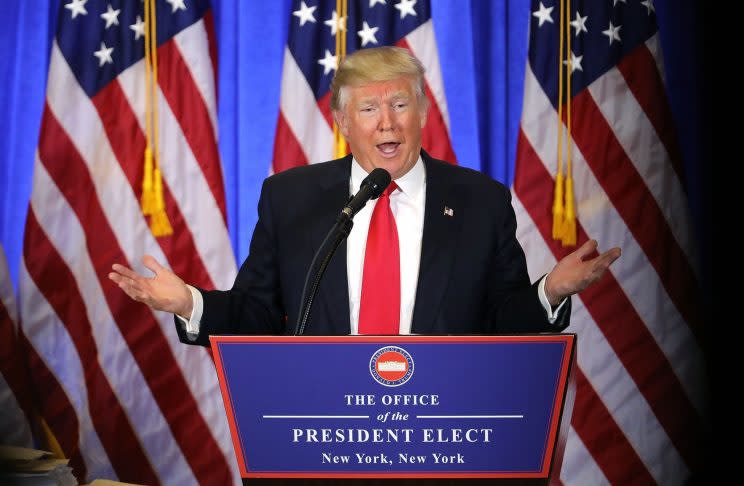How a Trump presidency could hurt Canadian sports teams

When Donald Trump takes office on Friday, he will do so with the worst approval rating of any new president in recent memory. According to a recent CNN/ORC poll, that number currently sits at a dismal 40 percent as Americans have soured on the populist Republican during his transition.
As unpopular as Trump is among his own countrymen, he’s even less well-liked north of the border. A Forum Research poll conducted following the election revealed that 73 percent of Canadians disapprove of the incoming president and 55 percent believe his presidency will be bad for Canada.
With his penchant for diplomatic gaffes and determination to repeal existing trade deals, it’s not hard to imagine how Trump could be a problem for Canada. But his policy plan also goes a step further and indirectly takes aim at one of the things Canadians hold more dear than anything else: their sports teams.
As it currently stands, there’s no disputing that Canadian teams in primarily-American leagues like the NHL, MLB, and NBA are at a structural disadvantage.
For one, they take in revenue in weaker Canadian currency and have to pay out salaries in American dollars. Also, outside of the NHL, teams like the Toronto Blue Jays and Toronto Raptors are tasked with recruiting primarily American talent. This is sometimes an issue as players can be understandably reluctant to move to a country that is foreign to them and have their children born or educated there – especially when there are so many alternatives in the United States.
Perhaps most importantly, Canadians generally pay far more income tax than their American counterparts. Although rates south of the border vary state-by-state, they are uniformly lower than those found in Canada. You will net more working in the U.S. than you can in Canada making the exact same salary. This fact is certainly not lost on free agents choosing between a team based above the 49th parallel and one below it.
This is where Trump comes in. From his campaign rhetoric to cabinet selections, the 45th president of the United States has made it abundantly clear that he’s a friend to his nation’s top earners – a group to which the vast majority of professional athletes belong.
Currently, the American federal tax rate for income in excess of $415,051 – a number below the minimum salary in the NHL, MLB, and NBA – is 39.6 percent. Trump’s tax plan would lower that number to approximately 33 percent, while bringing the threshold down to $112,500.
For comparison’s sake, Canada’s federal tax rate for its top earners is 53.53 percent on income in excess of $220,000. Now, many American states also collect income tax, helping bridge this gap, but not all and only residents of California come close to matching Canadians when it comes to the total tax they pay:

For argument’s sake, let’s say a baseball player has two offers. One from the Toronto Blue Jays and one from the Houston Astros. Both are for $10 million.
Even today, that player would stand to earn far more in a place like Texas, where there’s no state income tax. Under Trump’s plan, the gap widens even further. Here’s what the approximate breakdown would look like (all numbers in American dollars):

These numbers assume that Trump keeps the current tax rate up to his new $112,500 top bracket threshold (which is no guarantee), the player in question is single, and the individual doesn’t dabble in deductibles.
That said, the idea that a player could earn about 138 percent as much in certain parts of the United States as they could in Canada is pretty staggering. It would be unreasonable to expect that kind of disparity not to affect a player’s decision-making.
Following Trump’s election, Raptors general manager Masai Ujiri said, “I want to thank Donald Trump for making Toronto an unbelievable destination.” Unfortunately for his team, the opposite may well be true.
There are certainly those who will find the idea of living in Donald Trump’s America unsavoury, but money tends to speak louder than political preferences when it comes to choosing where to put down roots.
Canada’s professional sports teams are already swimming upstream when it comes to signing big-ticket American players – a Trump presidency is just going to speed up the current.



